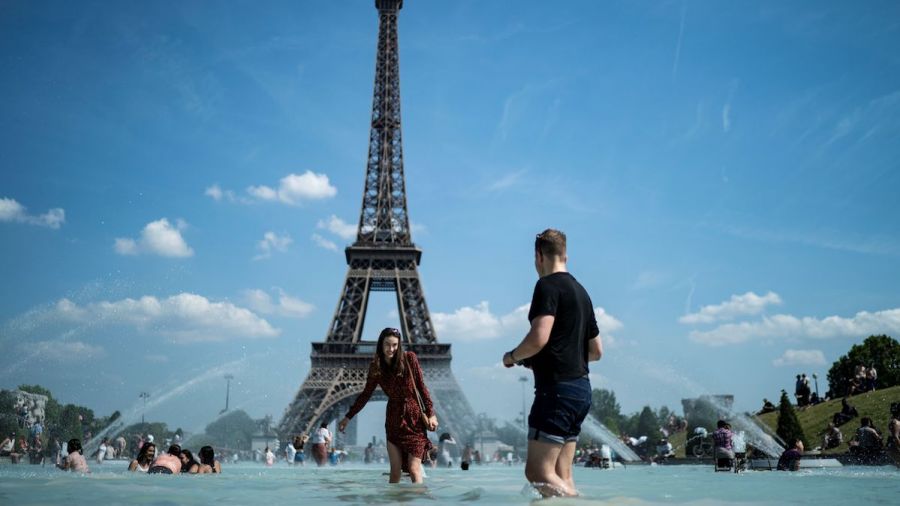A pair of heat waves in France have been linked to the deaths of 1,435 people this summer by the country’s health ministry.
Two bouts of record-setting heat hit France and other parts of Europe from June 24 to July 7, and July 21 to July 27. The French Health Ministry said in a news release that the death rate during the two heat waves was 9.1 percent higher than usual.
France and much of Europe saw record-breaking temperatures this summer. France recorded its highest-ever recorded temperature—114.6 Fahrenheit—on June 28 in the southern town of Gallargues-le-Montueux, according to the French national weather service.

Much of the continent isn’t built to cope with extreme heat. Fewer than 5 percent of all European households are air-conditioned, according to a 2017 report, and public transport can grind to a halt in intense heat.
Elderly populations are particularly vulnerable. The French Health Ministry said 974 of the people whose deaths were linked to the summer heat were older than 75. Ten people died while working, the ministry said. Eight during the first wave and two in the second. The majority had been working outdoors.
France has seen deadly heatwaves before. Similar episodes during the summers of 2015 and 2018 saw the death rates rise by 10.1 percent and 15 percent, respectively, the ministry said.
Health Risks
Heat waves pose serious health risks and can cause cardiovascular and respiratory systems to fail, resulting in premature death, Clare Heaviside, of the University of Oxford’s Environmental Change Institute (ECI), told CNN.
Elderly people are most at risk as they are more prone to heatstroke. Experts advise they should keep windows closed and pull blinds down during the hottest part of the day.
Planning for Extreme Weather
Dr. Friederike Otto, director of the ECI, said that France took important mitigation measures after a heat wave in 2003 contributed to tens of thousands of premature deaths.
“France made heat plans to better prepare and reduce mortality. These were activated during the June 2019 heat wave and measures including closing schools and setting up helplines reduced the impacts,” he said.
Paolo Ruti, a climate scientist at the World Meteorological Organization (WMO), told CNN that cities could adopt a host of measures to reduce heat impacts, including installing mist spray systems at bus stops and stations, as well as whitening roofs, which would help cool buildings.
![]()


